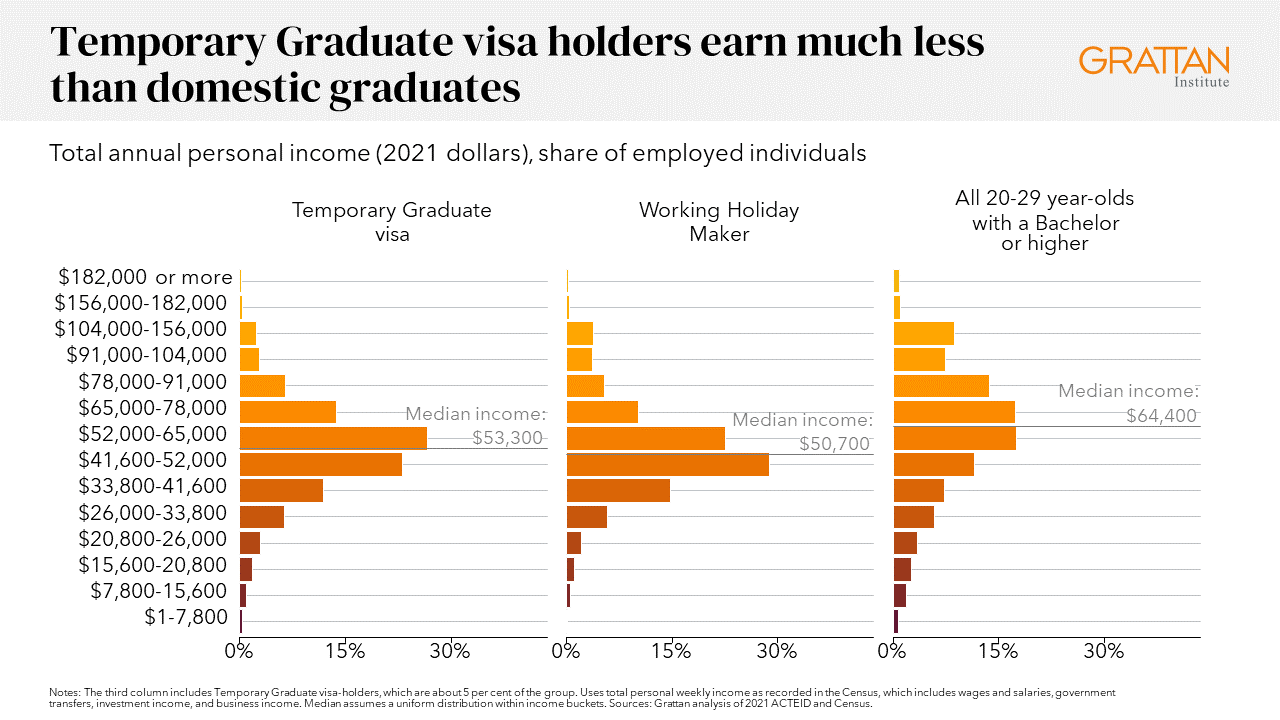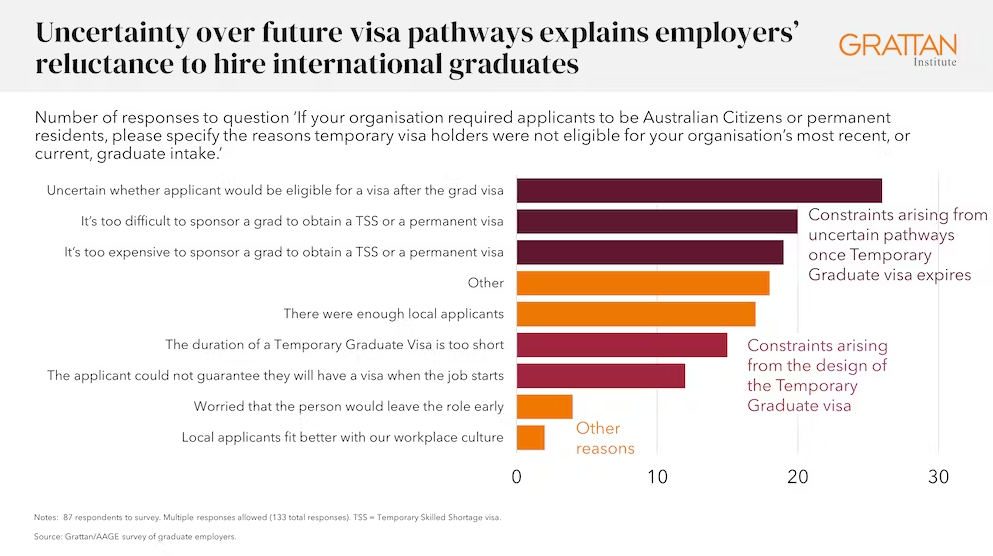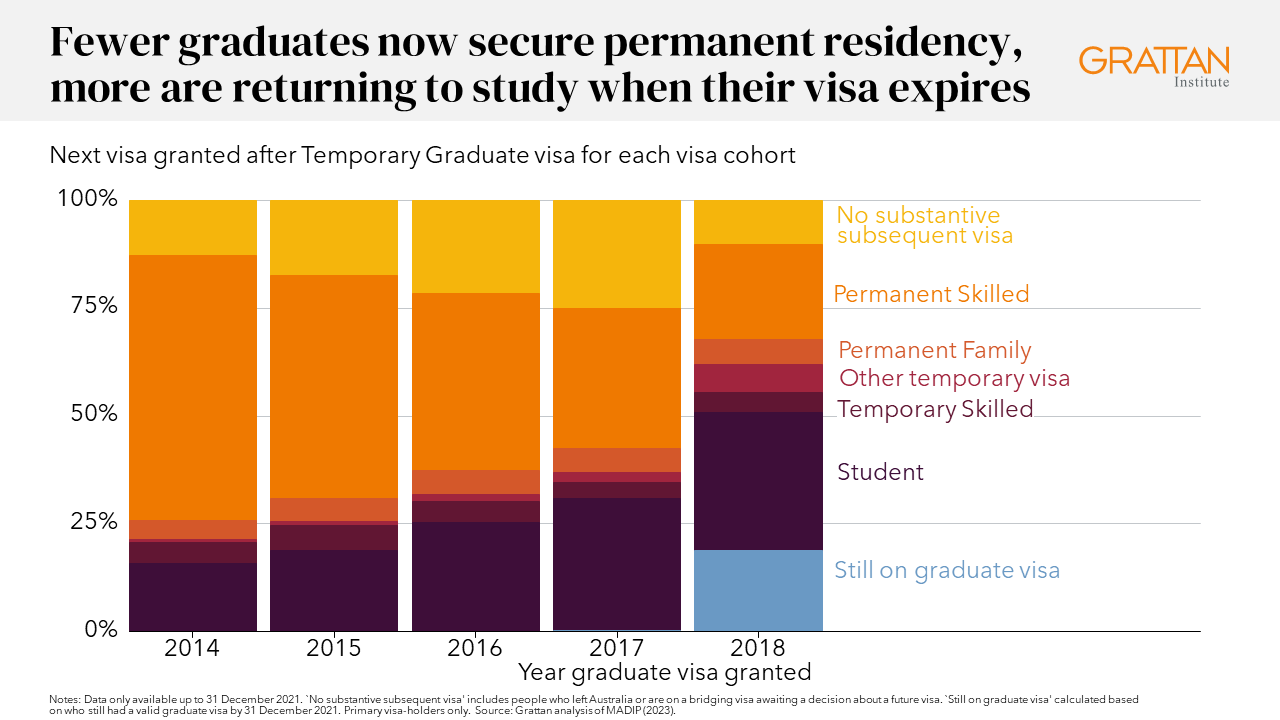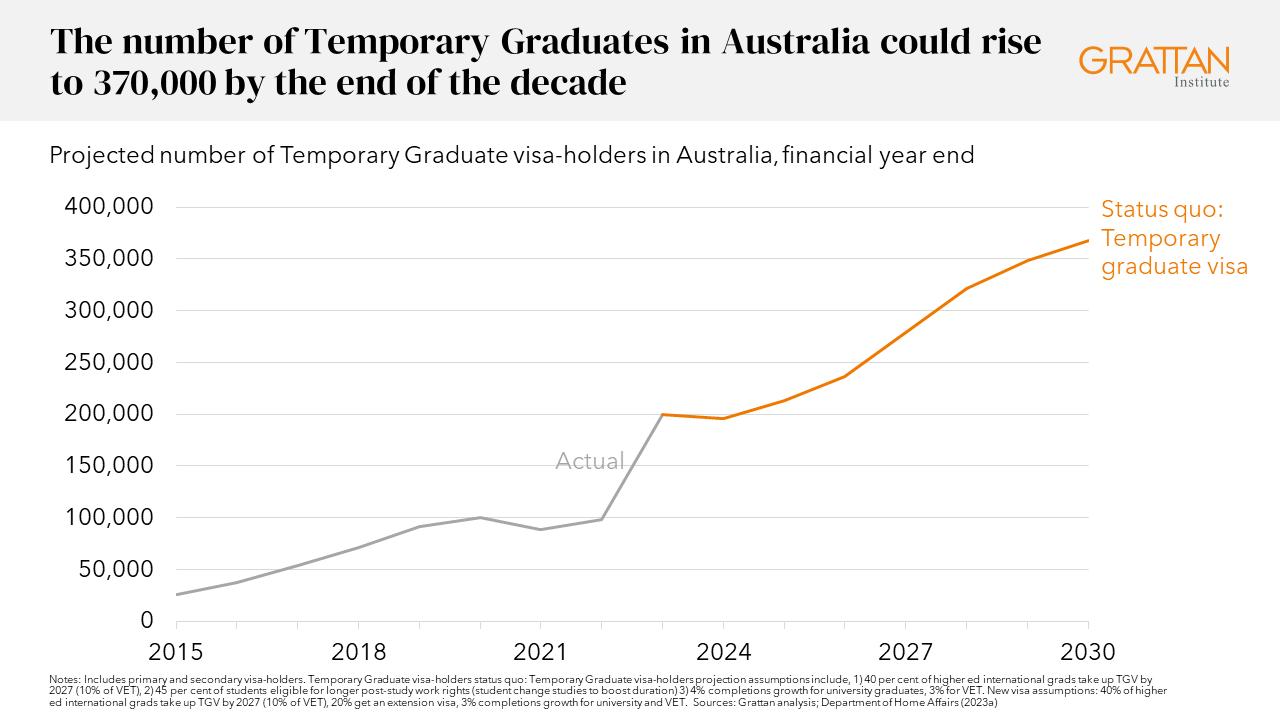Stop offering false hope
by Brendan Coates, Trent Wiltshire, Tyler Reysenbach
Many international students come to Australia with the hope of staying permanently.
But our latest report, Graduates in limbo: International student visa pathways after graduation, shows that the rights Australia grants international students to stay and work here after they graduate are too generous, offering many false hope.
Australia offers graduating students much longer temporary visas than our main competitors for international students, such as Canada, the UK and the US.
But many temporary graduate visa holders struggle to pursue their chosen careers in Australia, with
- only half securing full-time employment
- most working in low-skilled jobs
- and half earning less than A$53,300 a year, compared to just one-third of all graduates.
Outcomes are often not matching the effort
More than half of these visa holders work in jobs that don’t even require a tertiary qualification. In fact, the incomes of temporary graduate visa holders look more like those of working holiday makers, most of whom come to Australia to travel.

A new Grattan Institute survey of employers shows many are reluctant to hire international graduates, especially because of uncertainty about whether they can stay and work in Australia once their temporary graduate visa expires.
Other evidence suggests that poor English language skills, the poor education some students receive and discrimination are also important factors.

Fewer international graduates now get permanent visas
A growing number of international graduates are stuck in visa limbo in Australia, with less than one-third of temporary graduate visa holders now transitioning to permanent residency when their visa expires, down from two-thirds in 2014.
One in three return to further study here once their visa expires, mostly in cheaper vocational courses, to prolong their stay in Australia.

Encouraging so many international graduates to stay and struggle in Australia is in no one’s interests. It damages the reputation of our international higher education sector and erodes public trust in our migration program.
It hurts the long-term prospects of those graduates who do stay permanently. It adds to population pressures and housing prices. And it’s unfair to those graduates who invest years in Australia with little prospect of securing permanent residency.
And recent policy changes will only make this problem worse.
The Albanese government’s decision at last year’s Jobs and Skills Summit to extend the length of temporary visas for international graduates is a big reason why we should expect their numbers to nearly double to about 370,000 by 2030.
Some students studying in the regions can now stay and work in Australia on a temporary visa for up to eight years after they graduate.
Unless the number of permanent visas on offer each year rises, which seems unlikely, many more graduates will be left in limbo in the future.

And that’s despite the government pledging to reduce the number of migrants in Australia in “permanently temporary limbo”.
The government needs to reverse course, and quickly. Here’s what it should do.
Stop offering false hope
First, Australia should offer shorter post-study work visas to international graduates: just long enough to identify which graduates would make good prospects for permanent residency.
Visa extensions currently on offer for graduates with degrees in nominated areas of shortage, and for those living in the regions, should be scrapped.
Instead, graduates should be eligible for an extension to their visa only if they earn at least $70,000 a year – a good sign that they’ll eventually secure a permanent skilled visa.
Grattan Institute modelling shows that these reforms could result in the number of international graduates on temporary visas in Australia growing only modestly, to 260,000 by 2030. That’s 110,000 fewer than if current policies remain in place.
Fix visa pathways for talented graduates
Second, Australia should fix the pathways for talented graduates after they finish their temporary graduate visa.
The current system rewards persistence, encouraging students to make education and career decisions to secure permanent residency rather than making decisions that benefit their careers in the long-term.
We need to make it easier for employers to sponsor migrants if they earn a high wage, rather than the current system of restricting sponsorship to an outdated list of nominated occupations.
And we should select permanent skilled migrants who come here without a sponsor, based on our assessment of the characteristics that point to them succeeding in Australia long-term.
Do more to help international graduates find good jobs
And last, Australia should do more to help international graduates to thrive here.
The government should launch a campaign designed to change employer attitudes about new graduates, and public sector graduate programs should accept international graduates.
The federal government should publish detailed league tables of the employment outcomes of international graduates, including their earnings, to shame universities into supporting international graduates to build careers in Australia.
The price of policy inaction is clear: Australia will host an ever-larger pool of international graduates living in limbo.
Brendan Coates
Trent Wiltshire
While you’re here…
Grattan Institute is an independent not-for-profit think tank. We don’t take money from political parties or vested interests. Yet we believe in free access to information. All our research is available online, so that more people can benefit from our work.
Which is why we rely on donations from readers like you, so that we can continue our nation-changing research without fear or favour. Your support enables Grattan to improve the lives of all Australians.
Donate now.
Danielle Wood – CEO
